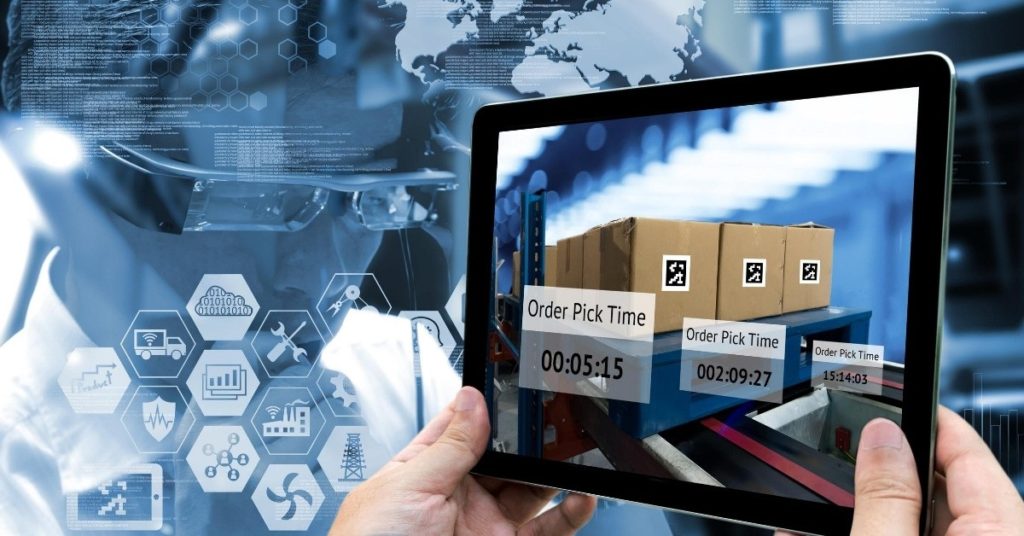Industry 4.0 is transformative. Among other things, it enables you to move from being a product-centric organisation to being customer-centric. This presents massive and potentially game-changing opportunities for your business.
Implementing Industry 4.0 and Smart Factory solutions is, of course, a marathon rather than a sprint. That said, even in the early stages of the transformation, all areas of your business are likely to see an impact. This includes manufacturing, product design, supply chain management, customer service, corporate strategy development, and more.
This covers a lot of people on your team. In fact, your whole team is likely to be impacted at some point by Industry 4.0 transformation.
Industry 4.0 is About More Than Technology
A lot of the discussions that take place in relation to Industry 4.0 focus almost entirely on technologies. In other words, how the development of new technologies has ushered in the era of Industry 4.0, making it possible to develop Smart Factories and truly digitalised organisations.
Processes often come up in these discussions too, whether that is equipment maintenance processes, validation processes, regulatory compliance processes, quality management processes, etc.
However, the people element of implementing Industry 4.0 initiatives and solutions is too often forgotten about completely. When the human factor is mentioned, it is usually relegated to points regarding efficiency savings, i.e. the potential for headcount reductions or resource redeployments.
From our experience at SL Controls implementing Industry 4.0 solutions for pharmaceutical and medical device industry clients, people are core to achieving success.
We believe people are as important, if not more important, than the technologies that we are all rightly excited about using, developing, and creating.
Not only are people directly impacted by the operational and business transformations that Industry 4.0 makes possible, but they are crucial to every stage of solution and technology implementation.
People-Centric Leadership
Managing change, implementing new technologies and processes, and making the most of the opportunities that Industry 4.0 presents, requires a people-centric leadership approach.
This means ensuring your team, particularly those at the coalface, have the knowledge and skills they need. You also need to engage them in both the overall strategy of the business and in individual projects, and they need to be empowered.
The worst case is when those on the frontlines feel disconnected, afraid, and frustrated with the changes you are implementing.
Instead, they should feel part of the Industry 4.0 development process, fully engaged with the principle of continuous improvement and the pursuit of excellence.
Human-Centred Design
The approach of Industry 4.0 solution providers is important too. The best results are achieved collaboratively through human-centred design.
In other words, the traditional ways of developing and implementing technology solutions are not effective in the Industry 4.0 world. These conventional approaches are top-down, where executives and managers decide on a solution that they believe will benefit the company before overseeing the development and implementation in partnership with a solution provider.
From a technical point of view, the technology works, so the executives and managers move to the phase of overseeing frontline worker training before telling those frontline workers to get on with it.
Unsurprisingly, the new solution rarely sticks the way the leadership originally planned, and the results rarely live up to expectations.
Instead of focusing on developing technology and then figuring out how to make it stick, the better approach is to focus first on the perspectives of users: how they work, their pain points, the challenges they face, how and why they use information, where their data comes from, how they think things could be done better.
You need strong executive and management level support too, of course.
Support from the other side – bottom-up support – is also essential. This means not only getting buy-in but proactive engagement from operators, technicians, and engineers on the factory floor as well as team members in other business units and departments.
Focusing on Business Objectives
Recent history is littered with stories of technologically fantastic solutions that are only used to a fraction of their capabilities because of a failure to take a human-centred approach in their design and implementation.
Industry 4.0 technologies offer opportunities to members of your team at all levels to develop their skills and become an integral part of this ongoing industrial revolution. We need to facilitate and nurture the potential of all people in our industries. This will help achieve Industry 4.0 success as well as your medium and long-term business objectives.





